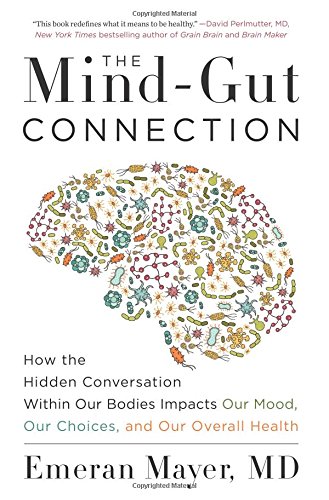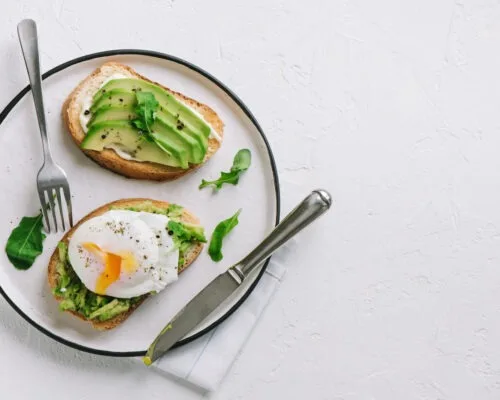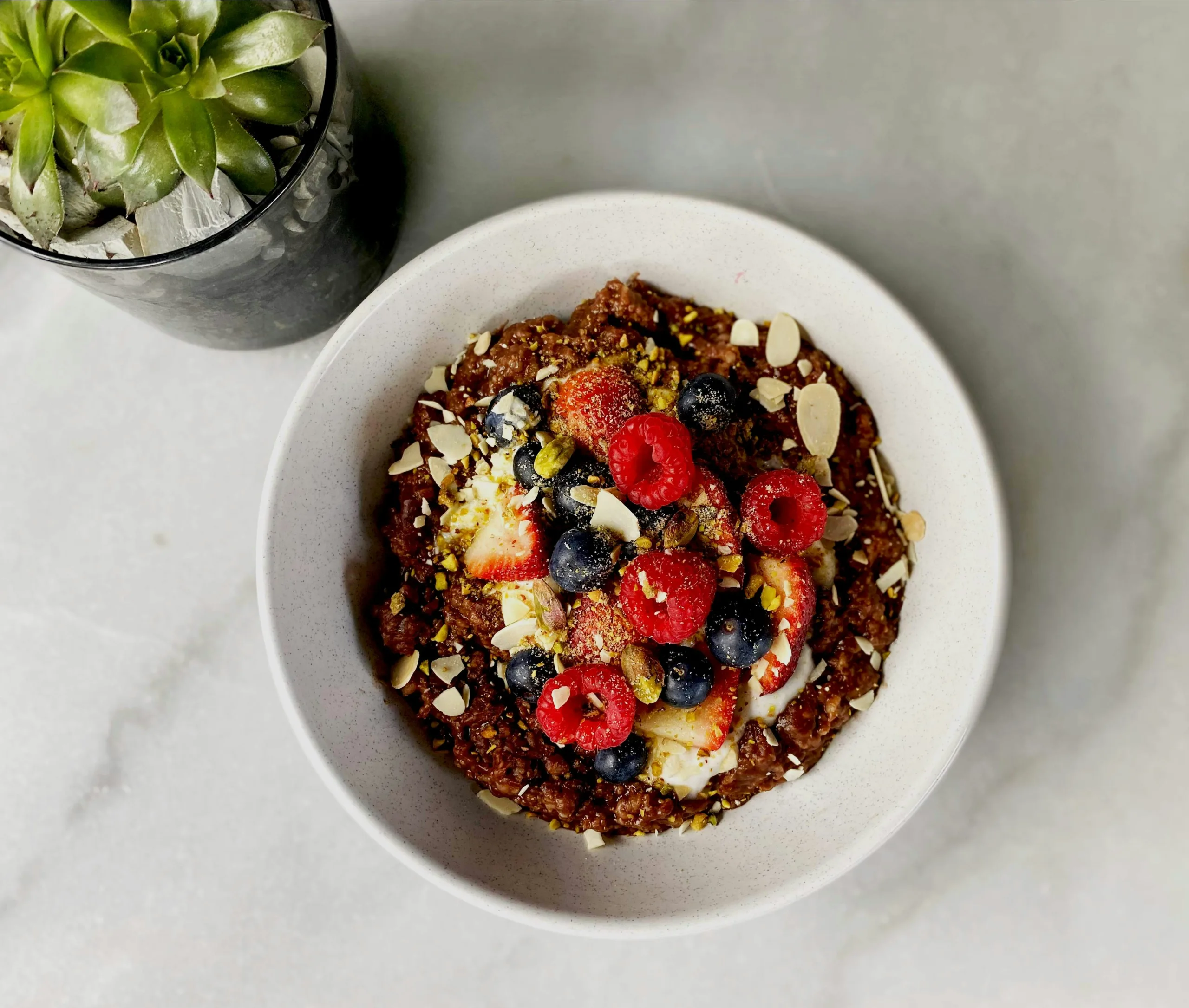If you think you’ve officially learned everything there is to know about gut health, think again.
When it comes to the microbiome, science is moving incredibly fast—and the research has still barely scratched the surface.
That’s why we were super excited to dive into “The Mind-Gut Connection,” a fascinating read by Emeran Mayer, MD, for the Nutritious Life Studio Book Club.
The NLS Book Club, moderated by Nutritious Life founder Keri Glassman, MS, RD, CDN, is one of the many community benefits of becoming Nutritious Life Certified.
Below we share a few of the most interesting insights that came up during the discussion. Consider this your RD-filtered CliffsNotes.
4 Gut Health Insights From ‘The Mind-Gut Connection’
1. Gut feelings are real
Dr. Mayer spends a lot of time explaining some of the research that provides biological evidence for why “gut feelings” happen.” Basically, the relationship between our digestive system and brain is super tight and communication between the two can impact everything from emotions and moods to decision-making and behavior. (Mind. Blown.)
Keri’s Thoughts: “My immediate thought of gut feelings is when I get butterflies in my stomach—either positive, excited butterflies, or the negative, pit-in-the-stomach feeling. When you are used to thinking through things rationally and plan, plan, plan it can sometimes be harder to listen to that intuition. Dr. Mayer explains how that feeling is coming from your history and past knowledge and experiences. There is so much more research to be done here and this is just the beginning—I found it super fascinating.
Something else I want to bring up is that when people are eating lots of processed foods, sleeping poorly, or drinking a lot, they are usually not as in touch with their bodies and the way they feel overall. When you’re eating healthfully and are well rested, you’re more in touch with any feeling in your body, including how you feel in your gut. I always tell clients that they’ll be more in tune with their hunger quotient—and everything else!—when they’re an overall healthful person. You’ll be able to listen to your gut better if you have an overall healthful lifestyle.”

2. Off sugar? Ditch artificial sweeteners, too
Sugar is no good for your gut, but when it came to health and diet issues people face that end up being tied to gut health, Keri immediately thought of a client she had who was having trouble losing weight. When she came into the office, the woman was using lots artificial sweeteners thinking they were better than sugar.
Keri’s Thoughts: “I addressed that these were highly processed foods and talked to this person about how artificial sweeteners can still affect insulin, which can still affect weight loss even though the calories aren’t there.
In the book, Dr. Mayer says, “Sweeteners change the metabolic pathways in gut microbes so they produce more short chain fatty acids, which can be absorbed by the colon, providing additional calories. This means when you consume artificial sweeteners, your body enlists your gut microbiota to harvest more calories in the colon from the microbial metabolic products to compensate for the missing sugar available in the small intestine.”
I had talked to my client about insulin, but I like how the author explains how artificial sweeteners also mess with your microbiome and gives another reason why they can lead to weight gain.”
RELATED: Are Artificial Sweeteners Making You Break Out?
3. You may not be able to change the makeup of your microbiome, but you can change how it acts
Dr. Mayer explains that no matter how many fermented foods and probiotics you ingest as an adult, research shows your overall microbial composition is unlikely to change a ton. That doesn’t mean, however, that you can’t improve your health via your gut, because even if the microbiome itself doesn’t change much, the metabolites do change, and these metabolites influence health.
Keri’s Thoughts: “One way to think about it is this: You have an army in your gut, and even though the soldiers in the army might not change, what they are doing can change. Instead of having an army working against you, you can have an army fighting for you. And of course, there are so many other benefits from eating foods that support gut health.”
RELATED: 4 Easy Ways to Improve Your Digestive Health
4. A lot of good gut health practices involve emotions and mental health, not the foods you eat
Yes, diet is key when it comes to maintaining a healthy microbiome. But when Dr. Mayer lays out his research-based recommendations, you might be surprised by how many of them are about stress, mental health, and emotions rather than specific foods.
He says to reduce stress and practice mindfulness, for instance, and to avoid eating when you are stressed, angry, or sad.
Keri’s Thoughts: We know that when you eat from a place of stress or anxiety, you are more likely to over consume, and this is connected to the gut-brain axis. When you’re stressed, your microbiome is also not in a place to digest food properly. (And by the way, we have our Emotional Eating course that goes way in depth on this topic!) Enjoy the secret pleasures and social aspects of food. This is community, connectedness, and being happy, which is right in line with the Love More pillar. Happy and positive emotions and the connection to gut health still needs more research, and I’m excited to see that next phase of research.”
Bet your gut instincts are telling you it’s time to become Nutritious Life Certified… Apply now!
(Featured Photo: Shutterstock)





























